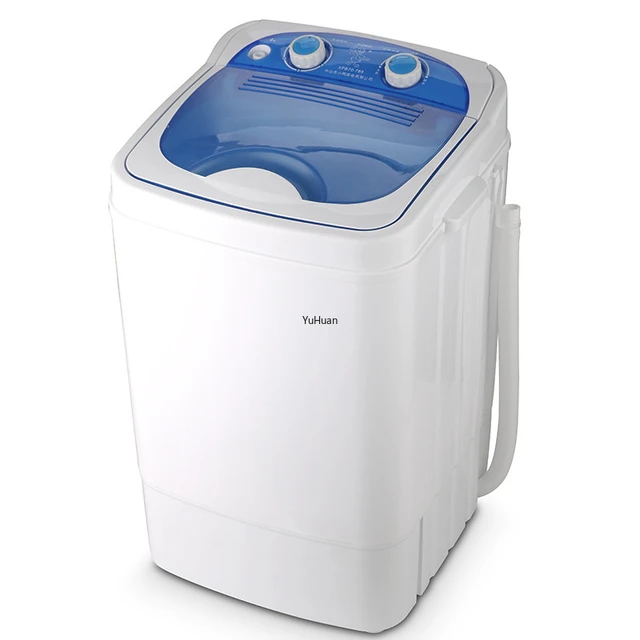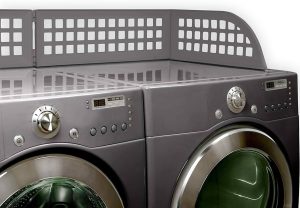Why does my washing machine smell like fumes?
Introduction
Discovering fumes emanating from your washing machine can be concerning and unpleasant. This unexpected odor can be caused by various factors, including electrical issues, overheating components, or chemical reactions. In this guide, we will explore potential reasons for fumes in your washing machine and provide specific insights into each possible cause. By understanding these factors, you can take appropriate measures to address the issue and ensure the safety and proper functioning of your appliance.

Why does my washing machine smell like fumes?
Electrical Problems
1.1. Overview
Electrical issues within your washing machine can result in fumes. These problems may arise from faulty wiring, damaged electrical components, or improper installation.
1.2. Possible Causes
Potential electrical problems causing fumes in your washing machine include:
Faulty wiring: Loose or damaged wiring can lead to overheating, which may generate fumes and a burning smell.
Damaged electrical components: Faulty or damaged electrical components, such as connectors or capacitors, can produce fumes when they malfunction or become overheated.
Improper installation: If the wiring or electrical components were not installed correctly, it can lead to electrical problems, potentially resulting in fumes.
Overheating Components
2.1. Overview
Overheating components in your washing machine can emit fumes. This can be caused by excessive friction, inadequate ventilation, or a malfunctioning part.
2.2. Possible Causes
Potential causes of overheating components and fumes in your washing machine include:
Worn or damaged bearings: Bearings are responsible for facilitating smooth rotation of the drum. If they become worn or damaged, excessive friction can occur, leading to overheating and fumes.
Blocked ventilation: Insufficient airflow due to accumulated lint, debris, or a blocked vent can cause components to overheat and emit fumes.
Malfunctioning heating element: If the heating element malfunctions or becomes stuck in the “on” position, it can overheat and produce fumes.
Chemical Reactions
3.1. Overview
Certain chemical reactions can occur within your washing machine, leading to the production of fumes. This can result from mixing incompatible cleaning agents or using inappropriate substances.
3.2. Possible Causes
Potential causes of chemical reactions and fumes in your washing machine include:
Mixing incompatible cleaning agents: Combining different cleaning agents, such as bleach and ammonia-based products, can result in hazardous chemical reactions and the release of fumes.
Residue from cleaning agents or fabric softeners: Buildup of residue from cleaning agents or fabric softeners can react with other substances during the wash cycle, producing fumes.
Improper use of substances: Using substances not intended for the washing machine, such as household cleaners or solvents, can lead to chemical reactions and the emission of fumes.
Mold or Mildew Growth
4.1. Overview
Mold and mildew growth within your washing machine can produce a musty smell and potentially emit fumes. This can occur due to improper maintenance, inadequate ventilation, or excessive moisture.
4.2. Possible Causes
Potential causes of mold or mildew growth and fumes in your washing machine include:
Insufficient cleaning and maintenance: Failure to regularly clean and maintain your washing machine can lead to the growth of mold or mildew, resulting in foul odors and fumes.
Excessive moisture and humidity: If the washing machine is located in a damp or humid environment, it can create a conducive environment for mold and mildew growth.
Inadequate ventilation: Poor ventilation within the washing machine or the laundry area can contribute to excessive moisture buildup, promoting mold and mildew growth.
Solutions and Prevention
5.1. Addressing Electrical Problems
Consult a professional technician or an electrician to inspect and repair any electrical issues in your washing machine.
Ensure proper installation of the washing machine and follow manufacturer guidelines for electrical connections.
Regularly check and maintain wiring to identify any loose or damaged connections.
5.2. Tackling Overheating Components
Clean or replace worn or damaged bearings to prevent excessive friction and overheating.
Keep the washing machine’s ventilation areas clean and unobstructed to promote airflow and prevent overheating.
If you suspect a malfunctioning heating element, consult a professional technician for diagnosis and repair.
5.3. Avoiding Chemical Reactions
Read and follow the manufacturer’s instructions for cleaning agents and fabric softeners to ensure compatibility.
Do not mix cleaning agents or other substances inside the washing machine unless explicitly instructed by the manufacturer.
Clean the machine regularly to remove residue buildup and prevent chemical reactions.
5.4. Preventing Mold or Mildew Growth
Follow proper cleaning and maintenance practices recommended by the manufacturer.
Clean the detergent dispenser, rubber door seal, and other areas prone to moisture and residue buildup regularly.
Keep the washing machine door open when not in use to allow airflow and reduce moisture accumulation.
Conclusion
The presence of fumes in your washing machine calls for prompt attention to identify and address the underlying cause. Electrical problems, overheating components, chemical reactions, and mold or mildew growth are potential culprits. By understanding these possible causes and implementing appropriate solutions, such as consulting professionals, maintaining proper ventilation, avoiding incompatible substances, and practicing regular cleaning and maintenance, you can resolve the issue effectively. Remember, if you encounter persistent fumes or are unsure about the cause, it is advisable to seek professional assistance to ensure the safety and proper functioning of your washing machine.

